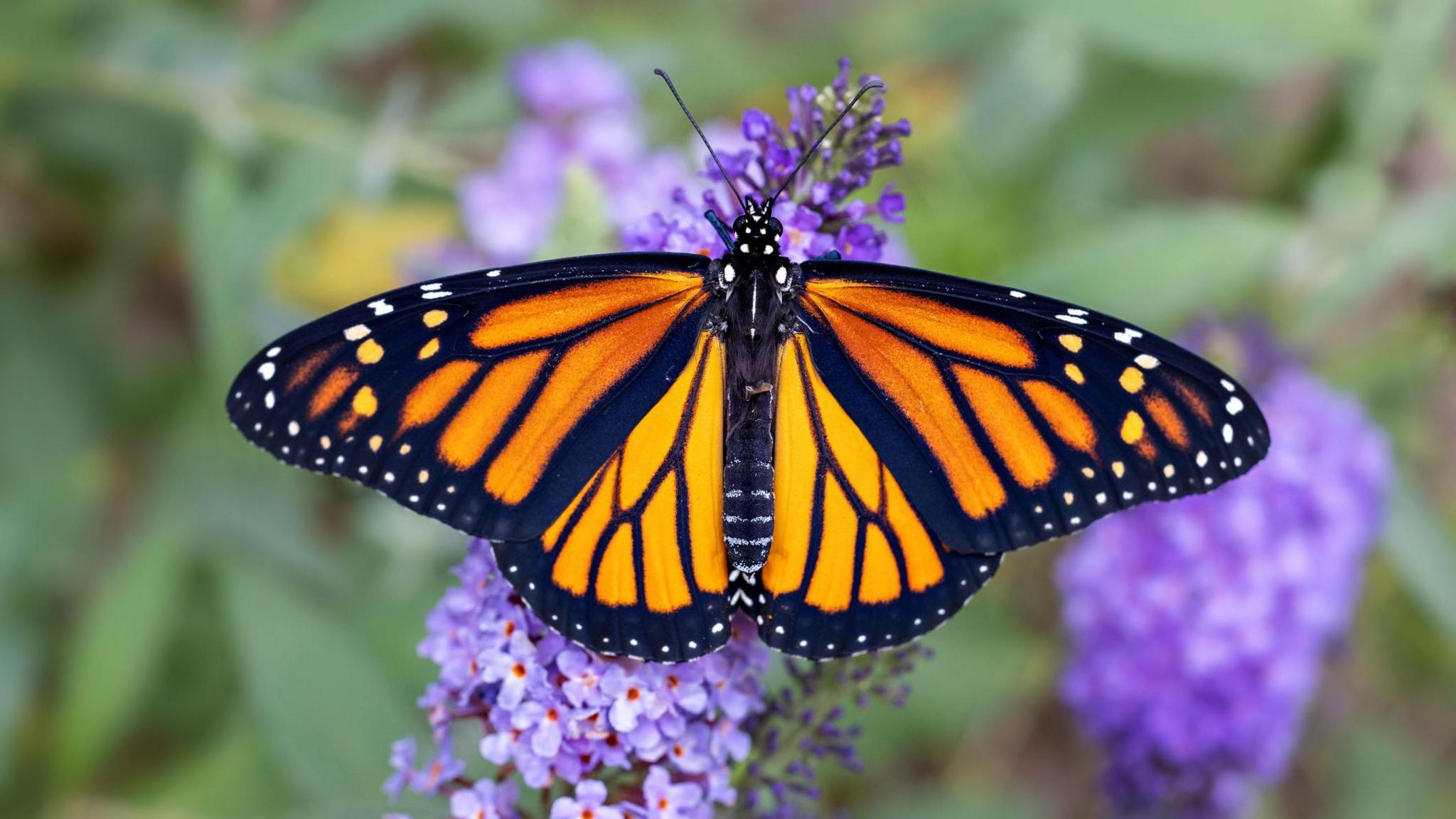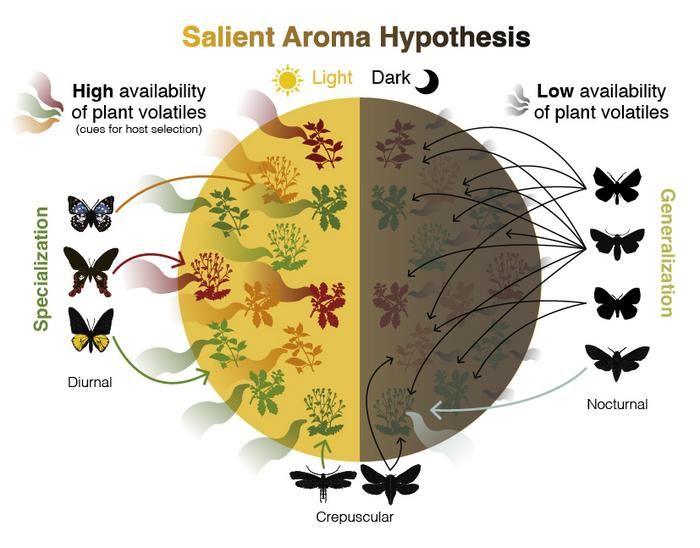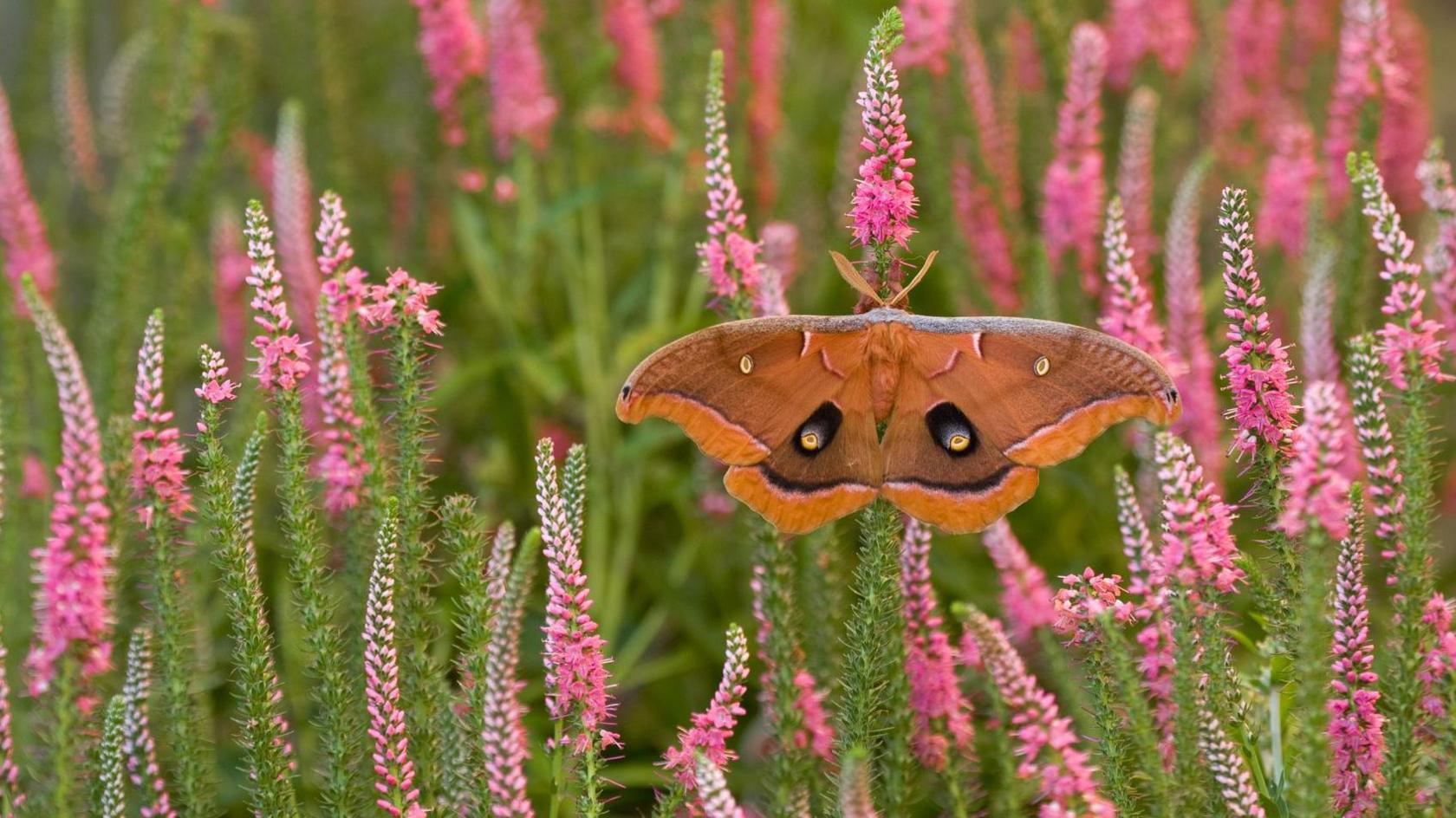Butterflies and moths are 'picky eaters' during the day

Monarch butterflies - like this one - are pretty picky eaters, according to the new research
- Published
Do you like some foods more than others? Well so do butterflies and moths!
An international team of researchers have been studying why some butterflies and moths only feed on a few types of plants, whilst others are less picky.
They came up with an idea called the Salient Aroma Hypothesis, which suggests that the smells plants give off are a key part of how specialised a butterfly or moth's diet becomes.
They found that during the day there were lots more plant smells, which meant that the winged insects had a greater variety to choose from and could pick their favourites, compared to at night, where they have to take what they can get, meaning their diet is more varied.
Was the Tyrannosaurus rex a picky eater?
- Published24 August 2021
Half of butterfly species in long-term decline
- Published2 April
Lowest number of butterflies ever recorded at Big Butterfly Count
- Published18 September 2024

"This idea provides a new perspective on why some butterflies and moths are picky eaters while others are not," said Po-An Lin, an assistant professor at National Taiwan University.
"It also highlights the critical role of plant volatiles, or scents, in shaping insect-plant interactions and evolutionary adaptations."
"Unlike humans, who eat a wide variety of foods to stay healthy, many insect herbivores specialise in feeding on only a few plant species."
"The Salient Aroma Hypothesis helps explain why some insects are highly specialised while others are more flexible in their diet." said Po-An Lin.

Nocturnal insects like the Polyphemus moth are less picky about what they eat
As part of their research, the scientists looked at the size of 582 insects' antennae - an organ which is used for smelling - from 94 species of butterflies and moths.
They found that female butterflies and moths that are active during the day, tended to have bigger antennae, than those active at night.
The researchers think this could mean that having better "smelling" equipment is more useful when there are lots more smells to detect.
"It provides a fascinating example of how plants, through their chemical emissions, have played a direct role in shaping the evolution of the insects that rely on them." said Po-An Lin.
Day-active insects like monarch butterflies, have evolved to become more picky eaters, whereas night-active species, like the Polyphemus moth, are less picky.
